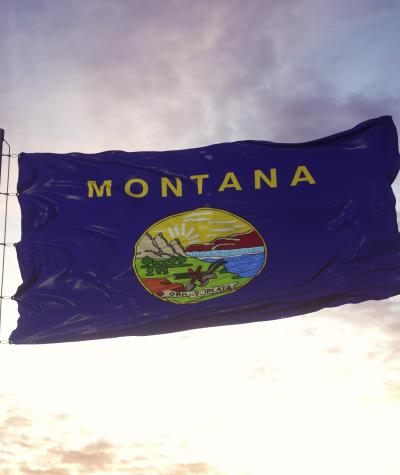In a win for transparency, a federal district court in Washington, D.C., has ruled that the Federal Election Commission (FEC) violated federal law by failing to sufficiently explain its reasons for dismissing Campaign Legal Center (CLC)’s complaint alleging that a super PAC called “Last Best Place (LBP) PAC” violated federal campaign finance reporting requirements in connection with ads it ran during the 2024 election.
The court sent the case back to the FEC, the agency that is responsible for enforcing federal campaign finance laws, ordering it to better explain its decision that LBP PAC did not break campaign finance laws when running ads against candidate Tim Sheehy, who was running for the U.S. Senate in Montana.
Voters have a right to know who is paying for the barrage of election advertising they see before an election — which requires the FEC to do its job and hold special interests accountable if they violate federal disclosure requirements.
When the FEC refuses to do its job, CLC is willing and able to take the agency to court in order to deliver the vital electoral transparency that Americans deserve.
Holding LBP PAC and the FEC Accountable
In early 2024, CLC filed an administrative complaint against LBP PAC, a super PAC that spent millions of dollars attacking U.S. Senate candidate Tim Sheehy during the Republican primary in Montana and failed to disclose any of this spending as “independent expenditures” as required by the Federal Election Campaign Act (FECA).
These millions of dollars were wholly funded by Majority Forward — the 501(c)(4) dark money group associated with SMP (formerly “Senate Majority PAC”), a super PAC closely aligned with the Democratic Party and Senate Majority Leader Chuck Schumer.
The FEC dismissed CLC’s complaint with a bare-bones explanation that relied entirely on the timing of LBP PAC’s ads in relation to the 2024 primary election in Montana. Its decision disregarded the law, as well as the recommendations of the agency’s own nonpartisan Office of General Counsel (OGC).
In response, CLC filed a lawsuit challenging the FEC’s dismissal in federal court, arguing that the FEC’s decision was contrary to law.
The court agreed, finding that the minimal reasoning provided by the FEC — that the advertisement did not run close enough to Election Day to count as express advocacy — was legally insufficient and thus “arbitrary and capricious” agency action. The court sent the case back to the FEC, ordering the agency to provide a full explanation for its decision.
Creating Transparency and Accountability in Election Spending
When the FEC fails to do its job, everyday Americans suffer the consequences of wealthy special interests and dark money networks manipulating our elections.
The FEC needs to investigate instances of alleged campaign finance violations, and, when it doesn’t, it has to provide well-reasoned explanations for not doing so.
Campaign Legal Center will continue taking the Federal Election Commission to court when it isn’t doing its job, just like we did here and just like we did when the FEC failed to act on our complaint against Iowa Values for failing to register as a PAC after supporting the re-election of Sen. Joni Ernst.
Read more about our direct lawsuit against Iowa Values here.
With your support, we will continue to call for the enforcement of campaign finance laws.

